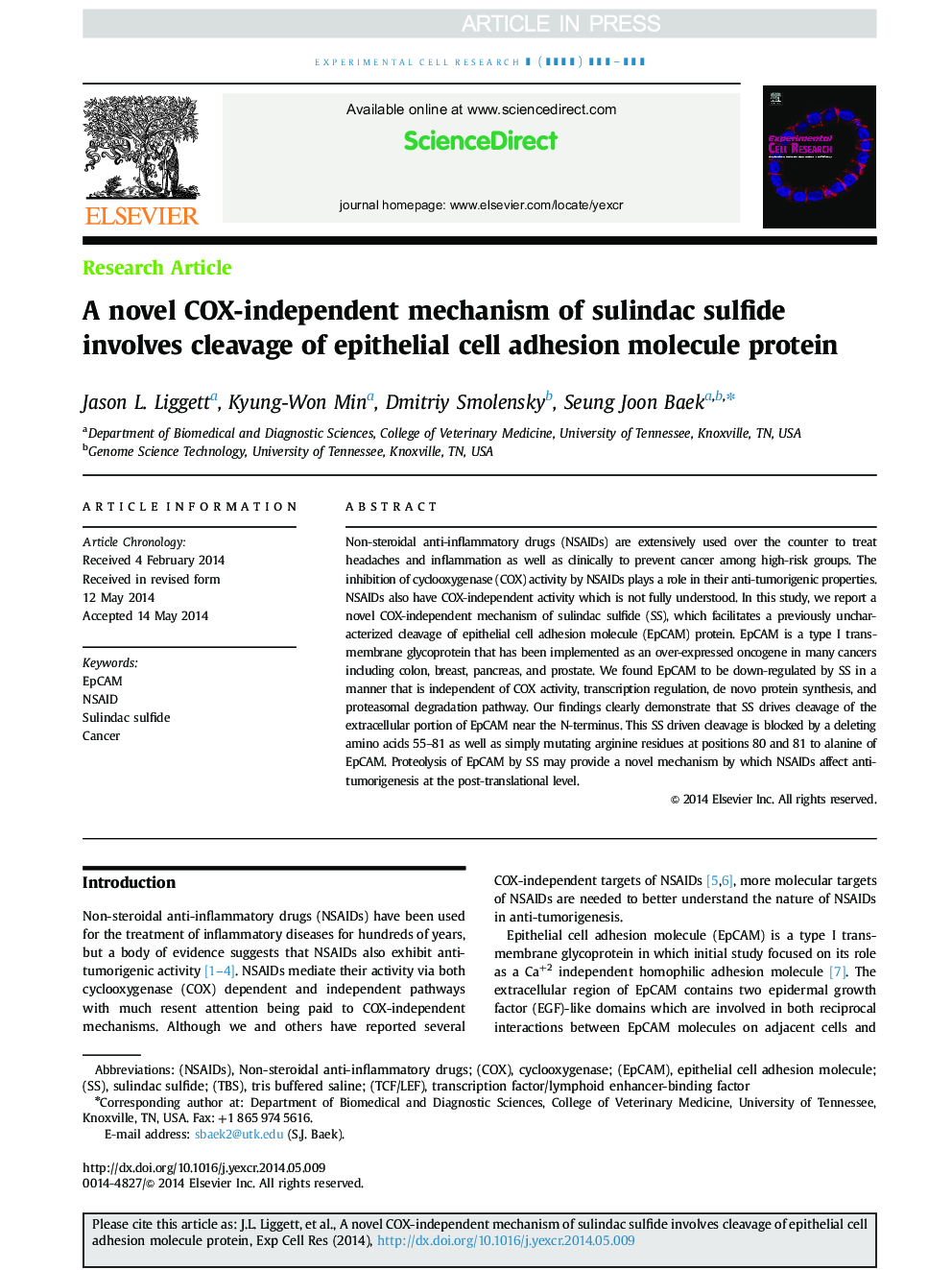| کد مقاله | کد نشریه | سال انتشار | مقاله انگلیسی | نسخه تمام متن |
|---|---|---|---|---|
| 10904007 | 1086551 | 2014 | 9 صفحه PDF | دانلود رایگان |
عنوان انگلیسی مقاله ISI
A novel COX-independent mechanism of sulindac sulfide involves cleavage of epithelial cell adhesion molecule protein
دانلود مقاله + سفارش ترجمه
دانلود مقاله ISI انگلیسی
رایگان برای ایرانیان
کلمات کلیدی
موضوعات مرتبط
علوم زیستی و بیوفناوری
بیوشیمی، ژنتیک و زیست شناسی مولکولی
تحقیقات سرطان
پیش نمایش صفحه اول مقاله

چکیده انگلیسی
Non-steroidal anti-inflammatory drugs (NSAIDs) are extensively used over the counter to treat headaches and inflammation as well as clinically to prevent cancer among high-risk groups. The inhibition of cyclooxygenase (COX) activity by NSAIDs plays a role in their anti-tumorigenic properties. NSAIDs also have COX-independent activity which is not fully understood. In this study, we report a novel COX-independent mechanism of sulindac sulfide (SS), which facilitates a previously uncharacterized cleavage of epithelial cell adhesion molecule (EpCAM) protein. EpCAM is a type I transmembrane glycoprotein that has been implemented as an over-expressed oncogene in many cancers including colon, breast, pancreas, and prostate. We found EpCAM to be down-regulated by SS in a manner that is independent of COX activity, transcription regulation, de novo protein synthesis, and proteasomal degradation pathway. Our findings clearly demonstrate that SS drives cleavage of the extracellular portion of EpCAM near the N-terminus. This SS driven cleavage is blocked by a deleting amino acids 55-81 as well as simply mutating arginine residues at positions 80 and 81 to alanine of EpCAM. Proteolysis of EpCAM by SS may provide a novel mechanism by which NSAIDs affect anti-tumorigenesis at the post-translational level.
ناشر
Database: Elsevier - ScienceDirect (ساینس دایرکت)
Journal: Experimental Cell Research - Volume 326, Issue 1, 1 August 2014, Pages 1-9
Journal: Experimental Cell Research - Volume 326, Issue 1, 1 August 2014, Pages 1-9
نویسندگان
Jason L. Liggett, Kyung-Won Min, Dmitriy Smolensky, Seung Joon Baek,